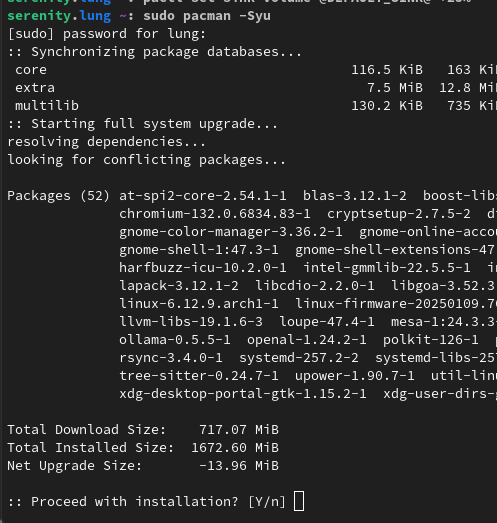Linux
Welcome to c/linux!
Welcome to our thriving Linux community! Whether you're a seasoned Linux enthusiast or just starting your journey, we're excited to have you here. Explore, learn, and collaborate with like-minded individuals who share a passion for open-source software and the endless possibilities it offers. Together, let's dive into the world of Linux and embrace the power of freedom, customization, and innovation. Enjoy your stay and feel free to join the vibrant discussions that await you!
Rules:
-
Stay on topic: Posts and discussions should be related to Linux, open source software, and related technologies.
-
Be respectful: Treat fellow community members with respect and courtesy.
-
Quality over quantity: Share informative and thought-provoking content.
-
No spam or self-promotion: Avoid excessive self-promotion or spamming.
-
No NSFW adult content
-
Follow general lemmy guidelines.
view the rest of the comments

I'm not a programmer by any means, but I'm guessing, they are just removing old redundant features and code, but I could be very wrong here.
I remember one internship in college, I realized that after 4 months of work, the result was 15k lines less code than when I started. I figured out new ways to structure the system so it was much easier to write and maintain, while actually adding features. That felt great
And yeah, there are many ways for it to happen. Ex. someone was shipping the tests with the code and decided to stop, debug symbols being removed, inlined dependencies being externalized, maybe a new version of a UI toolkit has extra icons built in
Efficiency can gently creep in. What blows my mind is that this is averaged out across so many packages at once. And sure, sometimes it goes up too, but nothing like Windows/OSX. It's really cool that you can make a Linux that will fit into ~any space you want, whereas the min requirements for Win11 include 64gb of hd
Removing some deprecated old library or just good old optimization.
a new version of a program can also move to a different set of dependencies that is shared with another program, so you don't need to keep both around.
This wouldn't appear like this when upgrading the system with pacman. pacman does not automatically remove orphaned dependencies during upgrades. You have to query for them and remove them explicitly as a separate operation afterwards. So in the OP what we're seeing is the new versions of packages themselves getting smaller.
til!
Good ol'
pacman -Rns $(pacman -Qqtd), or as I've aliased it,orphankillersaved me a gig ^^
had some old plasma5 stuff lying around from before the upgrade.